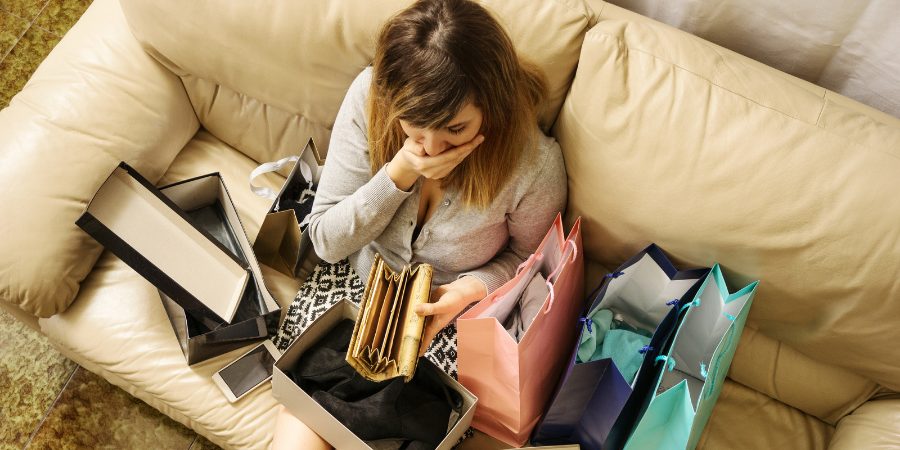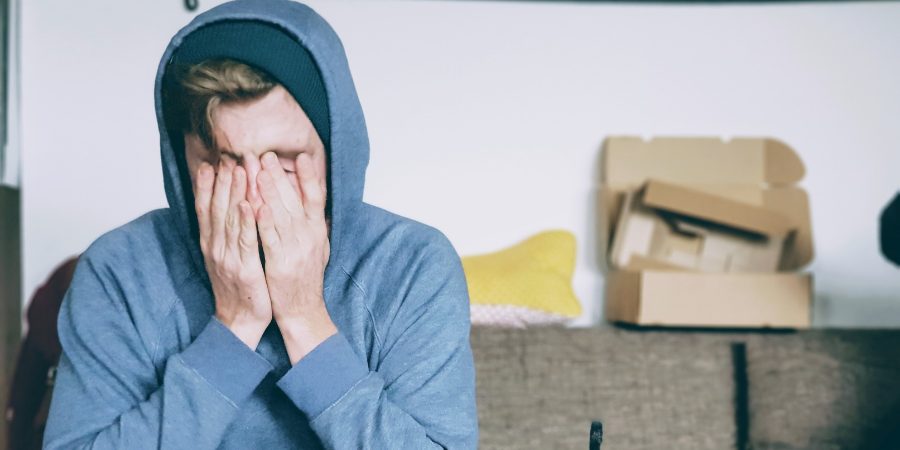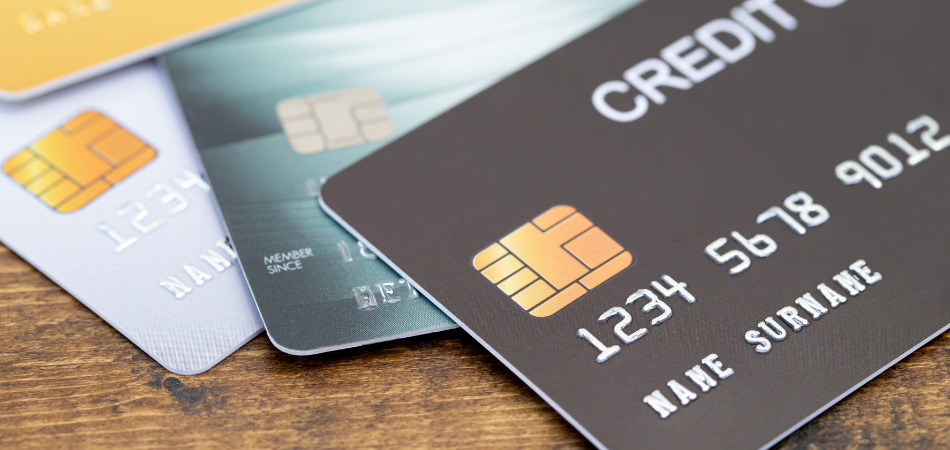
Written by:

Medically Reviewed by:
Last Updated:
March 28th, 2025
Shopping addiction
The term “shopaholic” is one that is thrown around in casual conversation, but shopping addiction is a real and serious problem. Shopping addiction, or compulsive buying disorder as it is also known, is a type of behavioural addiction, and it can be just as damaging as drug or alcohol addiction.
In this page, we will explore what shopping addiction is, how it develops and the signs and symptoms to look out for. We will also discuss shopping addiction treatment and where to get help if you or someone you know is struggling with this type of addiction.

What is shopping addiction?
Shopping addiction is characterised by an obsession with shopping and spending money. Like any addiction, people feel a compulsion to engage in the activity despite it having negative consequences for their lives.
At their core, all addictions stem from underlying issues which may not appear to have anything to do with the actual addiction. There are various reasons why a shopping addiction may develop. For some people, it may be a way to cope with underlying mental health problems such as anxiety oWhat is shopping addiction?r depression. For others, it may be a way to fill a void in their life or to make themselves feel better.
When you are addicted to shopping, you may feel a temporary high when you make a purchase but this high is soon followed by a crash, which leads you to feel worse than you did before. This may be because you think you are weak or because you know you can’t afford the items you have bought. Despite these negative feelings, your addiction will force you to continue shopping, but it is so important to understand that you are not weak and that there is nothing to be ashamed of. You are a good person who is just in need of support.
As well as these issues, compulsive shopping can also lead to financial problems and difficulties in personal relationships. Many people with addictions to shopping often lie about their spending habits and may become aggressive or defensive when confronted by family members. As shopping addiction is not as well known as substance or gambling addiction, your loved ones may not understand the reasons for your behaviour, which makes the problem difficult to understand.

Shopping addiction in the UK
It is estimated that there are between 200,000 and 350,000 shopping addicts in the UK. This equates to around 0.75% of the population. Women are more likely to suffer from compulsive shopping than men, with estimates suggesting that up to 90% of sufferers are women. There are various possible reasons for this demographic split, including societal pressure and marketing techniques, but the outcomes are the same regardless of gender.
The impact of shopping addiction
An addiction to shopping can have a significant impact on all areas of a person’s life. It can lead to financial problems as well as difficulties in personal relationships as people with shopping addictions often lie about their spending habits, causing arguments with family and friends.
Compulsive shopping can also lead to physical health problems, as you may end up foregoing basic needs such as food and sleep in order to spend more time shopping or money on purchases. This can lead to weight loss or gain, fatigue and a general deterioration in physical health.

Many addictions are often both a symptom and a cause of another mental health condition. You may have started shopping as a way of dealing with low self-esteem or depression or to help cope with some trauma in your life. However, as your addiction takes over, it can actually exacerbate the symptoms of your mental health conditions, leading to a vicious cycle of shopping to feel better but ultimately feeling worse.
Signs that you may have a shopping addiction
There are various signs and symptoms which may indicate that you are addicted to shopping. These include:
- Feeling an intense urge to shop or spend money even when you can’t afford it
- Lying to loved ones about your spending habits
- Frequently missing work, school, or other commitments in order to go shopping
- Spending a lot of time thinking about shopping or planning your next purchase
- Feeling guilty or ashamed after shopping
- Finding your mood improving immediately after you make a purchase only to have it deteriorate shortly afterwards
- Frequently returning items you have bought
- Having a home full of items you don’t need or use
If you recognise any of these symptoms in yourself, click here to find out more about the shopping addiction help available at UKAT.
Spotting shopping addiction in someone else
If you are worried that someone you know may be struggling with an addiction to shopping, there are also some signs to look out for:
- A loved one purchasing particularly expensive items or spending more money than they can afford
- Constantly talking about shopping or making purchases that they don’t need
- Hiding receipts or lying about what they have bought
- Being secretive about their finances
- Missing work, school or other commitments in order to go shopping
- Neglecting their personal appearance or hygiene
- Appearing anxious or agitated if they can’t go shopping
- Borrowing money to pay for purchases

If someone you know is addicted to shopping, it is important to be supportive without enabling their behaviour. This can be a difficult balance to strike because your loved one may be in serious financial difficulties as a result of their shopping addiction and may become angry or distressed if you won’t help. Make sure you stay strong and remember that you are acting with their best interests at heart. Here are some ways to ensure you are not enabling their addiction:
- Avoid giving them money to spend on shopping
- Don’t go with them to the shops or help them carry their purchases
- Encourage them to talk about how they are feeling rather than buying things to make them feel better
- Help them to find other activities that they enjoy and make time for these in their life
If you are worried about someone you know and think they may need help for shopping addiction, get in touch with us today for expert advice and support.

Shopping addiction treatment
Understanding that there is effective treatment available is extremely important because many people have managed to overcome their addiction and lead happy, healthy and fulfilling lives.
As with all addictions , shopping addiction treatment usually requires a holistic treatment approach that addresses all the aspects of the addiction. Inpatient treatment is best equipped for providing that holistic approach because it will give you the opportunity to shut yourself off from the outside world and focus entirely on your recovery. Recovery programmes will usually include a combination of different addiction therapies such as Cognitive Behavioural Therapy , group therapy and individual counselling, all of which are designed to help you understand and overcome the underlying causes of your addiction.
Alternatively, you may decide to undergo outpatient treatment for compulsive buying disorder. This can be more difficult to find because, unlike drug or alcohol addiction, help for shopping addiction isn’t typically available on the NHS. The main benefits of outpatient treatment are that you can continue to live at home, go to work or school and take care of your other responsibilities while you are receiving treatment. However, while this may seem like a good option, it can actually be quite difficult to stick to treatment if you are still being exposed to the same triggers and temptations on a daily basis.
If you are struggling with a shopping addiction, or if you are worried that someone you know has a problem with compulsive shopping, please don’t hesitate to get in touch with UKAT. We can provide effective shopping addiction help that can really make a huge difference.
Five things to know about shopping addiction
If you are struggling with a shopping addiction, or if you are worried about someone you know, here are five things to keep in mind:
- Shopping addiction is a real and serious condition
- It is not simply a case of lacking self-control or being lazy
- Shopping addiction can have a profound impact on all areas of a person’s life
- There are many underlying causes of compulsive shopping
- There is help for shopping addiction available which provides a real opportunity for recovery
How to get help
The first step towards overcoming your addiction is understanding that you are not alone and that there is help available. At UKAT, we have successfully treated many people for shopping addiction as well as for a wide range of other behavioural and process addictions. Our comprehensive inpatient programmes will provide you with the tools and support you need to recover and go on to lead a happy and healthy life.



